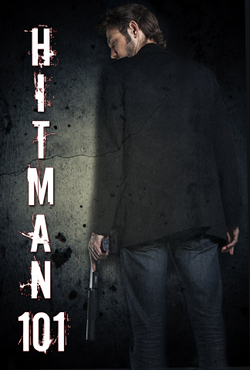Love Will Tear Us Apart: Bad Guy (2001)
Cast: Jae-hyeon Jo, Won Seo, Yun-tae Kim
Director: Kim Ki-duk
Country: South Korea
Genre: Drama
Official Trailer: Here
Editor’s Notes: The following review of Bad Guy is a part of Rowena’s coverage of the 6th Annual Globus Film Series at the Japan Society in New York, Love Will Tear Us Apart.
Jo Jae-hyeon holds the rare distinction of being one of the few actors who has worked with Kim Ki-duk multiple times. They began their collaboration on Kim’s debut film Crocodile (1996) and eventually made five films together, with Jo playing a mix of leading and supporting characters. Bad Guy is their last collaboration, with the title an appropriate term to describe their films: not only Jo’s characters of inscrutable, mute masculine force against women, themselves, and eventually the whole world but also the accusations of misogyny hurled at Kim. In both senses, Bad Guy is the culmination of their collaboration.
…not only Jo’s characters of inscrutable, mute masculine force against women, themselves, and eventually the whole world but also the accusations of misogyny hurled at Kim.
Jo excels here in channeling the energy of his expressive eyes to construct the feral demeanor of Han-gi, the titular character of the film, for he does not utter a single word except for one brief moment eighty minutes into the film (anticipating Chang Cheh’s wordless performance in Breath [2007].) The film’s beginning does not mince words to set the film’s violent tone: pimp Han-gi meets Sun-hwa (Won Seo), a young college student, on a park bench and they proceed to act out a pantomime of attraction and repulsion. Their meeting ends violently. Han-gi finds her once again and stages a situation in which she is eventually placed in a brothel. During her time there, he looks on into her room through a two-way mirror and keeps close watch on her suffering, pain, resistance against clients. One of his colleagues nearly divulges to Sun-hwa how Han-gi staged everything to have her become a prostitute. She connects the dots anyway and is determined to leave, but the madam stops her. Sun-hwa must contend with her lot and, over time, develops a strange connection with Han-gi.
 Though not as visually arresting and concentrated (due to an inexplicable prison tangent) as some of his other films, Bad Guy nevertheless presents the uncomfortable, stark physicality of marginalised relationships and figures for which Kim’s cinema is known. Kim’s use of the two-way mirror as a wall that separates Sun-hwa from Han-gi (in terms of class, culture) and that irrevocably connects them is also one of the film’s visual/thematic strengths. Each time Han-gi looks at Sun-hwa through the two-way mirror, he parts the curtain that hides the mirror from his side of the wall, marking this point of view like a film within a film, with him as the director and spectator at the same time. They become further connected through the mirror when Sun-hwa puts together pieces of photos of a couple that she had found and tapes them on the mirror. The missing pieces are of the faces of the couple and a montage shows her reflection and Han-gi’s eyes staring from the other side standing in for the missing pieces, as if they were the couple.
Though not as visually arresting and concentrated (due to an inexplicable prison tangent) as some of his other films, Bad Guy nevertheless presents the uncomfortable, stark physicality of marginalised relationships and figures for which Kim’s cinema is known. Kim’s use of the two-way mirror as a wall that separates Sun-hwa from Han-gi (in terms of class, culture) and that irrevocably connects them is also one of the film’s visual/thematic strengths. Each time Han-gi looks at Sun-hwa through the two-way mirror, he parts the curtain that hides the mirror from his side of the wall, marking this point of view like a film within a film, with him as the director and spectator at the same time. They become further connected through the mirror when Sun-hwa puts together pieces of photos of a couple that she had found and tapes them on the mirror. The missing pieces are of the faces of the couple and a montage shows her reflection and Han-gi’s eyes staring from the other side standing in for the missing pieces, as if they were the couple.
Surely the mysterious ambiguity in which Kim clothes his characters, even in the face of their body language, attests to his distinct vision as a filmmaker that repels, allures, and rankles simultaneously.
Presumably, the accusations of misogyny thrown at the film stem from the fact that Sun-hwa as victim comes to feel something like empathy for Han-gi her pimp-aggressor. But both Han-gi and Sun-hwa have little dialogue as a way to enter their subjectivity, which unsettles easy conclusions about their actions and reactions, let alone why they return to each other even when Han-gi releases Sun-hwa. Surely the mysterious ambiguity in which Kim clothes his characters, even in the face of their body language, attests to his distinct vision as a filmmaker that repels, allures, and rankles simultaneously.


















